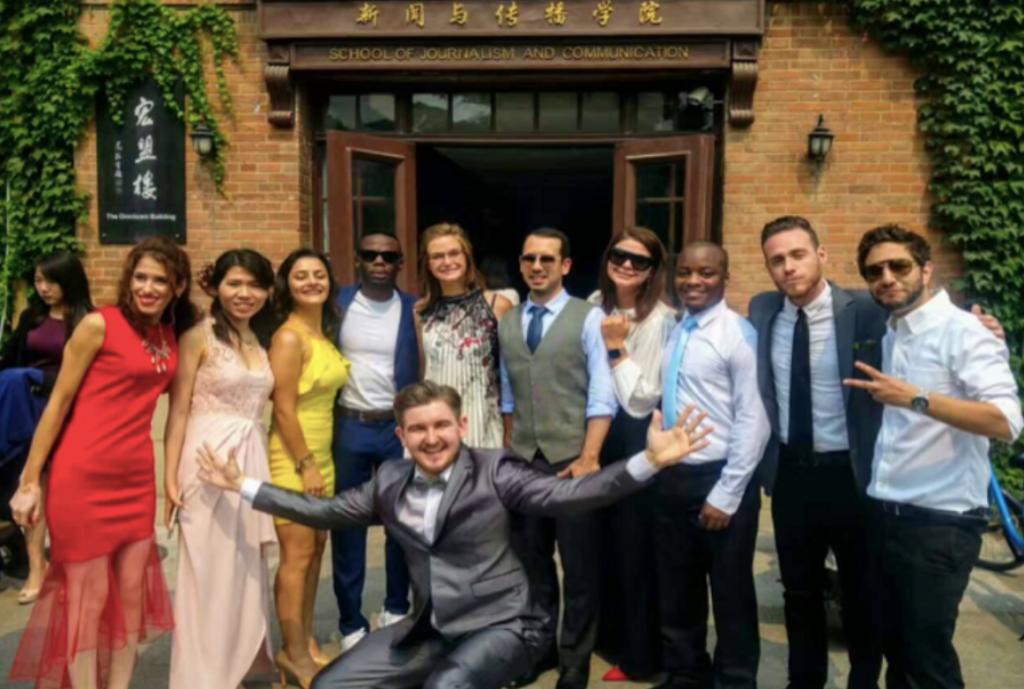
Eugene Aferin (center) celebrates his Global Business Journalism program graduation, 2017
By IRINA KOMAROVA
Global Business Journalism reporter
It’s a nice spring morning in Beijing. The smell of the flowers is filling the air. The blue sky contrasts with a pallet of pink, yellow and white blossoms. Eugene Aferin is walking by the beautiful ivy-covered journalism school building and plunging into pleasant recollections of his Tsinghua University years spent here.
“Know your audience” flashed through his head – this golden rule of journalism taught by Professor Rick Dunham has been firmly imprinted on his mind. And this is what he, himself, is now teaching his students at a center for professional skills training in Shanghai, where he is coaching debate and public speaking. As Aferin learned during time in the Global Business Journalism program, journalistic knowledge and experience always pays off, whatever field you ultimately end up in.
Aferin, a 28-year-old from Russian Siberia, came to China in 2015 for the first time to study in the Global Business Journalism master’s degree program at Tsinghua University. His digital diary reflects the challenges he faced and the cheerfulness that kept him going as he was immersed in a very different culture.
“I'm facing plenty of problems typical for any ‘laowai’ [foreigner], but other positive things offset all the downsides," he wrote in his blog on his third day in Beijing. “Everything around delights and amazes me."
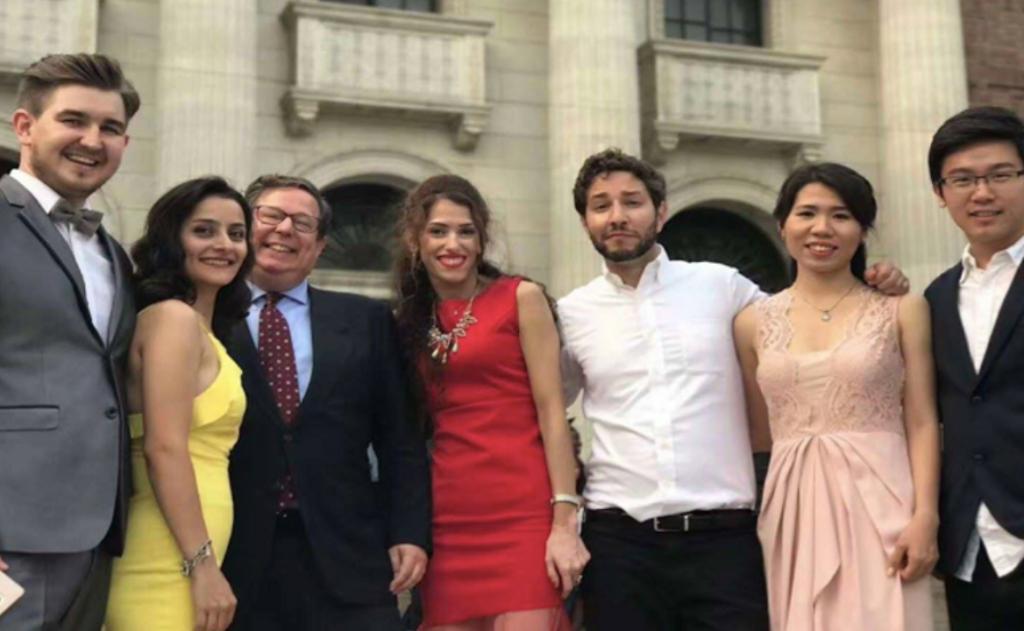
Eugene Aferin (left), with classmates from Iran, Israel, Vietnam and China. Professor Rick Dunham is third from the left.
Aferin’s difficulties – including only a modest proficiency in Chinese – became challenges to surmount, and soon he dared to interview people solely in Chinese – and succeeded.
“He's a brave man ... and he is not afraid to try and fail,” said Professor Dunham, an American of Russian ancestry on his mother’s side. “He accepts challenges and learns from errors. This kind of self-awareness and commitment to improvement have made him an outstanding professional and will allow him to continue to excel in whatever he chooses to do.”
During his studies at Tsinghua, Aferin engaged in many activities like traveling, student events and debates but he remained a good student.
"He was so smart and such a good writer that could turn in a good paper with minimal effort. One time I gave him a grade of 85 for a story that was good but could have been better. He told me that he would have given himself a lower grade," said Dunham.
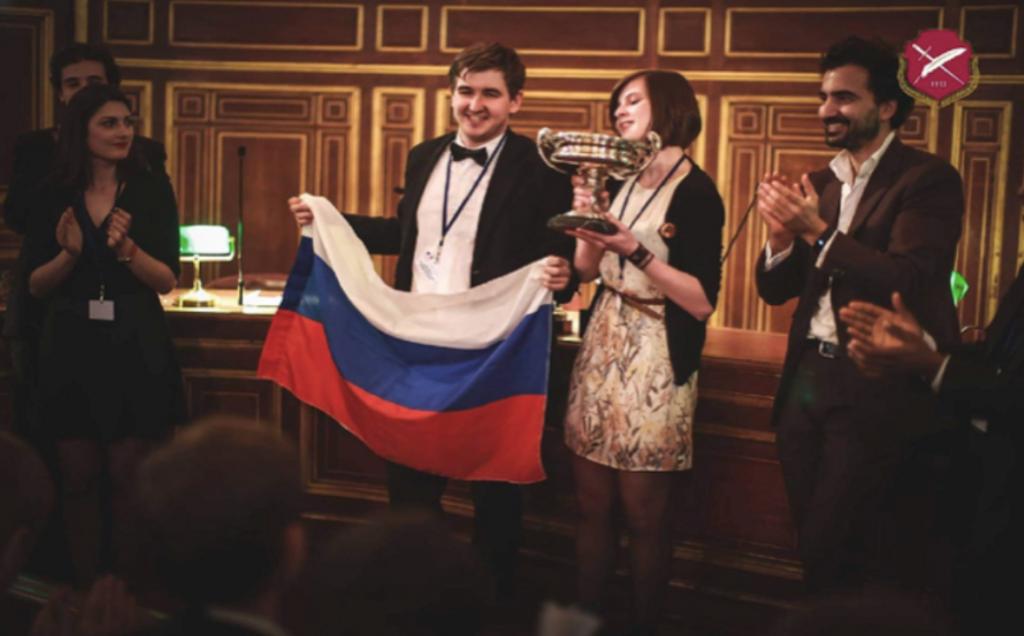
Eugene Aferin’s team when it won the public debate competition in France in 2016
Aferin’s passion for debating complemented his journalism training and helped him to become an outstanding reporter and a champion debater. With a good sense of humor and a command of four languages, Eugene made a lot of friends.
“He's open-minded and possesses a multicultural mind," said Viktória Fričová, Eugene's friend and a Tsinghua classmate from Slovakia. "As a friend and a human being he is very supportive and caring."
After graduating from Tsinghua he took a position as a reporter at Sputnik News, a Russian state-owned news agency. There he grew as a journalist and saw his work published around the world.
"You get overall satisfaction when you see your news published on a news source and, especially, if it got quoted by different media," said Aferin. “I felt it first at Sputnik.”
From 2017 to 2019 he worked as a news editor at CCTV+, a dream job for many journalists in China. As a supervising editor at CCTV+, he enjoyed seeing the progress of editors under his guidance but felt limited by the strict state control of Chinese media.
"Censorship exists, and it is not just about alternative opinions and criticism of the government. Even language and wording got strict: there is a list of words that you cannot even tell on Chinese media," he said.
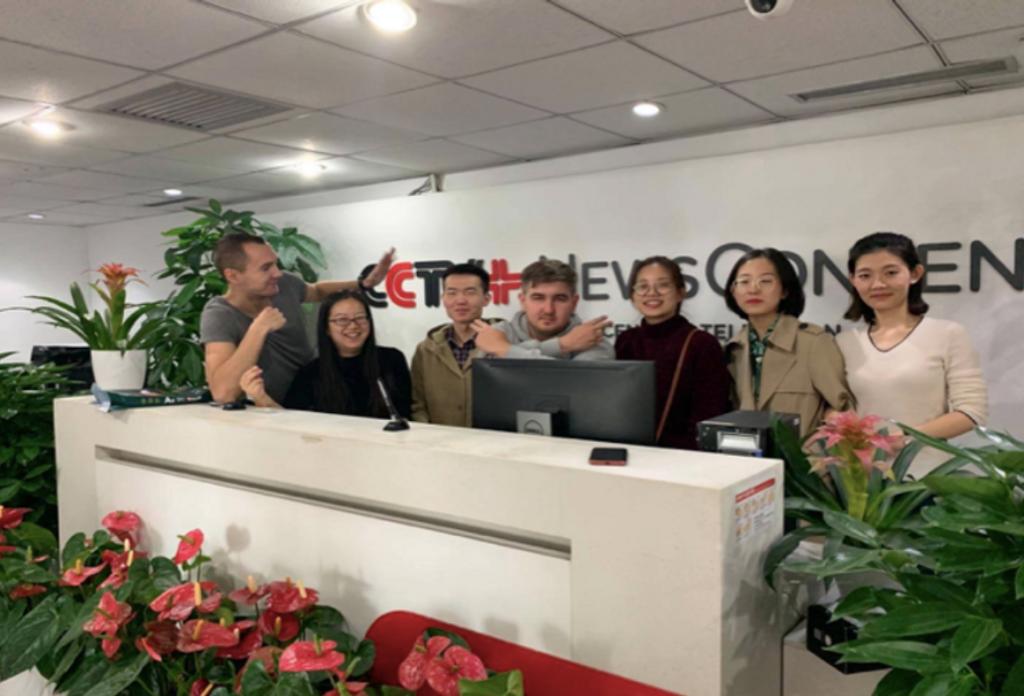
Eugene Aferin with colleagues on his last day at CCTV+, 2019
Aferin feels grateful for those years in journalism, saying he learned many skills that helped him in his personal and professional development.
“Journalism helped me to be ready for any type of stressful situation,” he said. “Leaving my comfort zone, talking to strangers without being embarrassed, communicating comfortably in a foreign language, becoming an expert on a topic in a short period of time is something that I can credit my journalism experience for."
Since 2020 the Russian expat has been working at the LearningLeaders education center, where he is coaching debate and public speaking. He has managed to turn what he loves into his job.
“I can describe the value of journalistic experience in my life with Rafiki's quote from The Lion King: ‘The past can hurt, but from the way I see it, you can either run from it or learn from it’," said Aferin.
And he chose the latter.
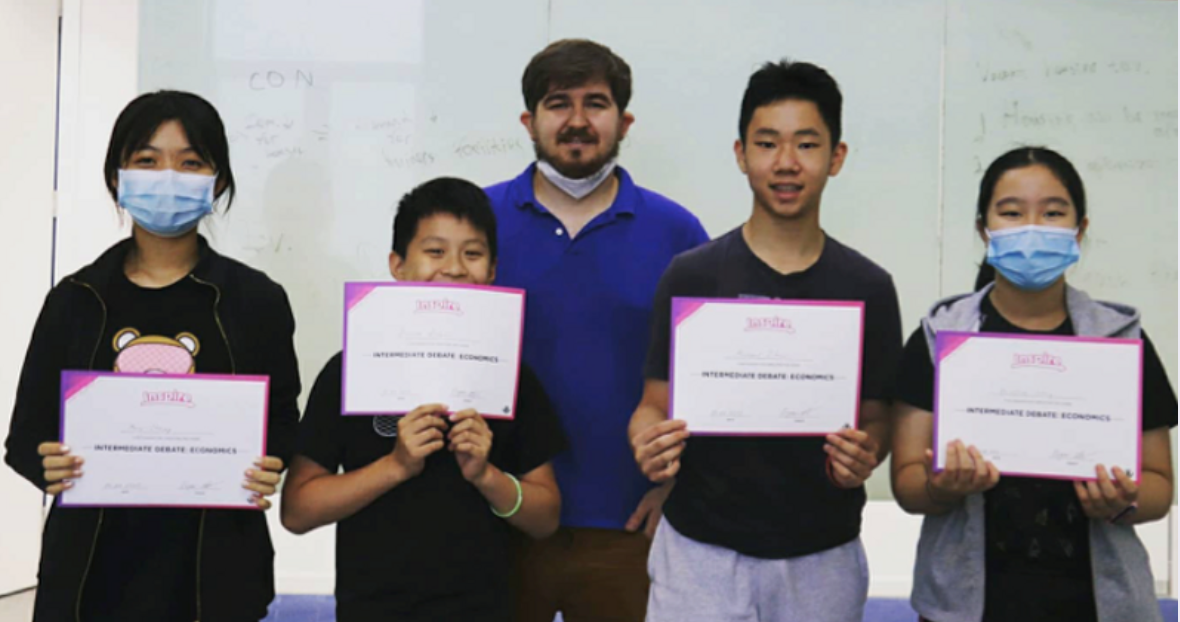
Eugene Aferin and his students at the LearningLeaders center in Shanghai, 2020

